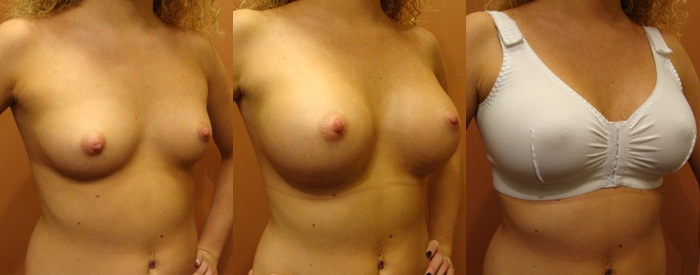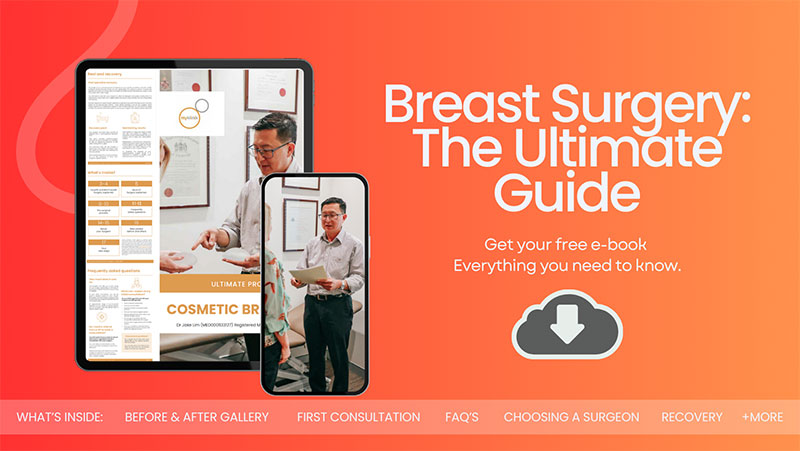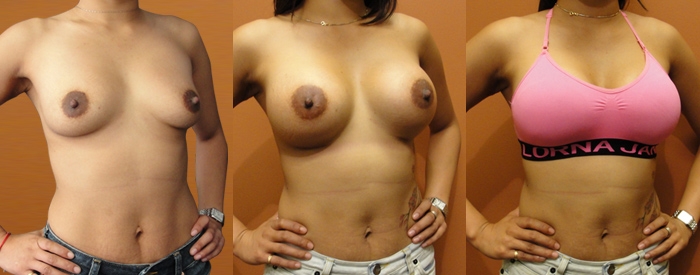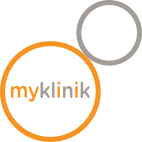Tips and Timeline for Breast Augmentation Surgery Recovery
Breast augmentation is one of the most commonly performed plastic surgeries worldwide, offering a means of achieving a more proportionate bust line. With that being said, like any surgery, breast augmentation requires a recovery period where patients need to take certain precautions and follow specific guidelines to ensure optimal results and prevent complications.
Dr Jake Lim is a specialist plastic surgeon based in Sydney, Australia with experience in breast augmentation.

What to Expect after Breast Augmentation Surgery
First Few Days after Surgery
In the first few days after surgery, it’s normal to experience some swelling, bruising, and discomfort, as your body begins to heal. Your breasts will be bandaged or placed in a surgical bra. Dr Lim will prescribe pain medications to help manage the discomfort. It’s recommended that you take it easy during this time, avoiding any physically challenging activities. You’ll be encouraged to walk around to promote circulation and reduce the risk of blood clots. It’s crucial to follow all post-operative instructions provided by Dr Lim, including care for your incisions, and signs of complications to look out for.
Dr Lim’s 2024 Breast Surgery Guide

A Week Post-surgery
By the end of the first week, you’ll likely see a noticeable reduction in swelling and discomfort. You may start to feel more like yourself. Most patients can return to work if their jobs are not physically demanding. You should continue to avoid strenuous activities, including heavy lifting and intense exercise. You’ll likely have a follow-up appointment with Dr Lim to assess your recovery.
A Month after Breast Surgery
A month post-surgery, you’ll likely have resumed most of your normal activities, excluding intense exercise or heavy lifting. The majority of the swelling should have subsided, allowing you to see the results of your breast augmentation more clearly. Your breasts may still feel sensitive, and the scars from the incision may still be visible. Scar appearance will gradually improve over the next several months.
Six Months after Breast Surgery
At six months post-surgery, your breasts should have fully settled into their new shape and size. Sensation in the nipple and areola may return to normal in some cases if there was any temporary loss. Any residual swelling should have resolved, and your incision scars should have faded significantly, although they will continue to fade more over time.
Always remember that individual recovery timelines can vary depending on multiple factors, including the surgical technique used, the patient’s overall health, and how closely post-operative instructions are followed.
Dos and Don’ts during Breast Surgery Recovery
Recovering from breast augmentation surgery requires patience and proper care. Here are some dos and don’ts to help ensure optimal recovery.
Do’s
- Follow Dr Lim’s advice: Your plastic surgeon has your best interests at heart, so it’s important to follow the post-operative care instructions provided. This may include guidelines on medication, dressing care, physical activity, and follow-up appointments
- Rest and hydrate: Proper rest is essential for your body to heal. Stay hydrated and maintain a healthy diet to promote healing. Remember, your body needs more nutrients when it’s recovering from surgery
- Wear the recommended support garments: Dr Lim will recommend a surgical bra and a stabiliser to support your breasts during the recovery period. These provide support, reduce swelling, and help your breasts heal into their new shape
- Monitor your incisions: Watch for any signs of infection around the incision area, such as redness, unusual swelling, or discharge. If you notice anything concerning, contact Dr Lim’s team immediately
- Attend all follow-up appointments: These visits allow your plastic surgeon to monitor your recovery and address any potential complications early
Don’ts
- Don’t rush your recovery: Everyone’s body heals at its own pace, so don’t rush to get back to your routine. Return to work and normal activities when you feel ready and have the green light from Dr Lim
- Don’t engage in strenuous activities: Avoid heavy lifting, intense exercise, or any activities that might strain your chest muscles during the initial recovery period. These activities can prolong your recovery and disrupt the healing process
- Don’t sleep on your stomach: To avoid applying pressure on your breasts, sleep on your back. You may want to use extra pillows for support and comfort
- Don’t expose your scars to the sun: Sun exposure can darken your scars, making them more noticeable. When going outdoors, cover your breasts or apply a high-SPF sunblock on your scars once they’re fully healed
- Don’t ignore signs of complications: While complications are rare, they can happen. Symptoms such as excessive pain, unusual swelling, high fever, or redness and warmth around the surgical area could indicate an issue. If you experience any of these symptoms, contact Dr Lim right away
Recovery after breast augmentation surgery is a gradual process that requires careful attention to your body’s needs. Remember, successful recovery isn’t just about achieving your aesthetic goals—it’s also about taking steps to ensure your overall health and well-being. Following these dos and don’ts will help you go through the recovery process more smoothly and enjoy optimal results from your surgery.

12 Tips for Optimal Recovery after Breast Augmentation Surgery
- Establish a Support System: Prior to your surgery, arrange for a friend or family member to accompany you on the day of the procedure and help you with tasks around the house in the initial days of recovery
- Pre-arrange Your Recovery Space: Prepare a comfortable, calming environment for your recovery. Consider stocking up on items such as books, movies, pillows, and bottled water to keep within arm’s reach
- Quit Smoking: Smoking can significantly slow down the healing process and increase the risk of complications. If you’re a smoker, it’s advised to quit at least a few weeks before your surgery
- Reduce Alcohol Intake: Like smoking, alcohol can interfere with your healing process. Try to limit your intake both before and after surgery
- Stay Positive: Your mental health is just as important as your physical health during recovery. Keep a positive mindset and don’t hesitate to seek support if you’re feeling anxious or depressed
- Pre-cook Meals: Before your surgery, prepare and freeze several meals. This way, you won’t have to worry about cooking during the initial phase of your recovery
- Limit Sodium Intake: Excessive sodium can increase swelling. Aim to eat a low-sodium diet in the weeks following your surgery
- Take Short Walks: Once you feel up to it, short and gentle walks can boost your circulation, decrease the risk of blood clots, and may help you feel better overall
- Avoid Hot Baths and Showers: Hot water can increase swelling and might interfere with the healing of your incision sites. Opt for lukewarm showers instead
- Use Scar Treatments: Once your incisions have healed, consider using Vitamin E cream to help reduce the appearance of scars
- Practice Deep Breathing Exercises: Deep breathing can help reduce pain and tension, improve blood flow, and aid in the overall healing process
- Stay Patient: Healing takes time, and it’s normal to have good days and bad days
These tips, combined with your Dr Lim’s post-operative care instructions, can help make your recovery process more comfortable and efficient.

FAQs about Recovery after Breast Augmentation Surgery
Q. How long do you need to rest after breast surgery?
The rest period after breast augmentation surgery varies depending on the individual and the specifics of their surgery, but generally, patients are advised to take at least one week off from work. During this time, it’s important to get plenty of rest and avoid strenuous activities. By the end of the first week, most patients start to feel better and may resume some light activities. Full recovery and resumption of normal activities often take about 4-6 weeks. Always consult with Dr Lim to understand your personal recovery timeline.
Q. What not to do after breast surgery?
Following breast augmentation surgery, it’s important to avoid activities that could strain your chest muscles, such as heavy lifting or vigorous exercise, for at least 6 weeks. You should also refrain from sleeping on your stomach to avoid putting pressure on your breasts. Avoid smoking and limit your alcohol intake as these can slow the healing process. Do not ignore any signs of complications, such as excessive pain, unusual swelling, or fever. If you notice any of these symptoms, contact your Dr Lim’s team immediately.
Q. Is walking OK after breast surgery?
Yes, walking after breast augmentation surgery is not only OK, it’s encouraged. Light walking can help boost circulation, decrease the risk of blood clots, and may aid your overall recovery. You should avoid more intense activities, such as jogging or running, until Dr Lim has confirmed you’re ready.
Q. Can I be alone after breast surgery?
While it’s technically possible to be alone after surgery, it’s generally not recommended, especially during the first 24 to 48 hours. Having someone there to help you immediately after the procedure is crucial. This person can assist with tasks around the house, help you get to the bathroom, and provide emotional support. If you live alone, consider arranging for a friend or family member to stay with you or check on you regularly in the initial days of recovery.
Q. What is the worst day after breast surgery?
In most cases, the second or third day after surgery can be the most uncomfortable. The anaesthetic used during the procedure will have worn off, and swelling and bruising may reach their peak. Everyone’s experience is unique, and some patients might feel the worst on the day of the surgery itself, while others might find the entire first week challenging. It’s important to remember that discomfort can be managed with pain medications prescribed by Dr Lim and will decrease as your body continues to heal.
Further Reading about Breast Surgery with Dr Lim
- Read Dr Lim’s Breast Augmentation Page
- Read Dr Lim’s Breast Lift with Implants Page
- Read Dr Lim’s Breast Lift without Implants Page
- Read Dr Lim’s Post Pregnancy Procedures Page
- Read Dr Lim’s Nipple Reduction Page
- Read Dr Lim’s Blog about What I Wish I’d Known Before I Had Breast Augmentation Surgery
- Read Dr Lim’s Blog about Typical Emotions Experienced After Plastic Surgery
- Read Dr Lim’s Blog about Healthy Food and Supplements During The Post-Operative Period
Medical References about Breast Surgery Recovery
- Breast Enlargement Surgery: What to Expect at Home
- How long is the recovery for a breast augmentation?
- Breast augmentation recovery – what you need to know
- Recovery after breast augmentation surgery: What to expect
- Breast enlargement (implants)
About Dr Jake Lim
Highly qualified and experienced specialist plastic surgeon Dr Jake Lim focuses on facial plastic, cosmetic breast and body contouring after significant weight loss
Dr Lim creates the best possible plastic surgery results for his Australia-wide and international patients.
Dr Lim is passionate about making sure each and every patient has access to the right information about available treatments and procedures and is able to make well-informed decisions.
At My Klinik, patient safety, education and achieving optimal results are our top priorities.




